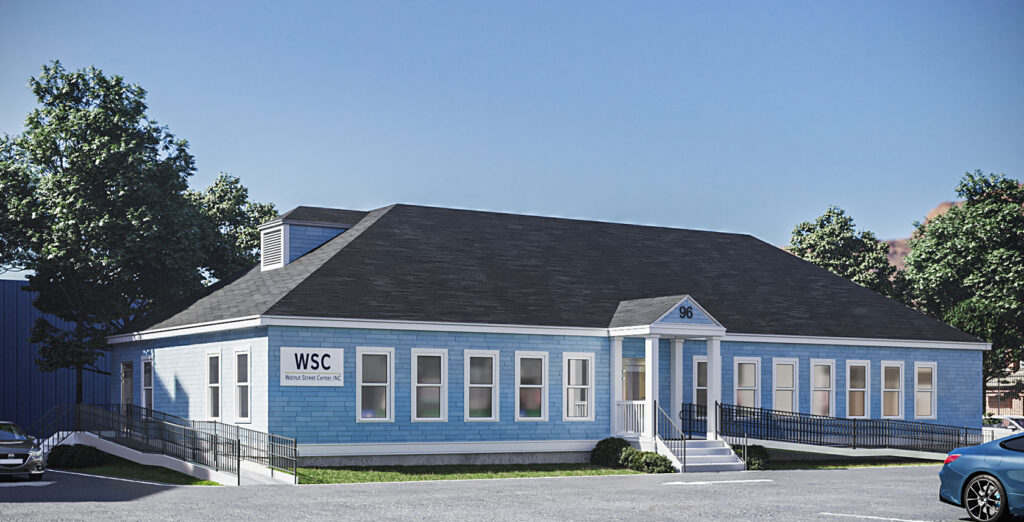
A new program in Hyde Park will provide increased services for young adults with intellectual and developmental disabilities.
The new Business Street facility opened in May and is operated by Walnut Street Center, a Medford-based nonprofit organization that runs a variety of services for adults with intellectual disabilities. It currently offers day programming to about 20 individuals but aims to offer space for 50, once it is fully settled in its new home and has hired more staff.
Its opening comes to a field that is still coping with lingering effects from the pandemic, said Carolyne Guffey, CEO at Walnut Street Center.
“These guys have been home waiting anxiously for a program to open up; I think the pandemic kind of put a hold on everything,” she said. “We’re super excited to be able to open up the program finally.”
The new location will largely serve young adults who recently turned 22, the age at which they transition from special education support through schools to adult services through the state’s Department of Developmental Services and will focus on programming that can set them up for pre-employment programs.
Guffey compared that moment of transition to graduating from high school.
“You graduate from high school, and you’re not quite sure where to go from there,” Guffey said. “Some of us go to college, some of us go to trade school, some of us get jobs. I think the same thing happens with the folks that we support.”
The program will offer opportunities for participants to explore potential career opportunities, interact and integrate with the community and volunteer with other nonprofits, like those supporting the elderly, food banks and animal shelters.
Walnut Street Center’s new site is not alone in its new Hyde Park location — there are a handful of other programs supporting individuals with intellectual and developmental disabilities nearby and the Department of Developmental Services’ office serving the Greater Boston area is located in the neighborhood, but given challenges for the programs, especially in the wake of the COVID-19 pandemic, she said that need is currently outpacing availability.
“There are definitely other agencies doing similar things, but the need is greater than the availability of programs,” she said. “A lot of people aren’t expanding because they’re trying to staff the programs that they already have without taking on new projects”
Need is especially high among the younger age group the new location will serve, as the field works to assist young adults who aged out of school-based services during the pandemic, when day programs were shuttered, and are now looking to join in, Guffey said.
“We were mandated, as most businesses were, to shut down, so a lot of people turned 22 or graduated from schools at that time or stayed home from school and just stayed there and they just haven’t had any opportunities,” she said.
Day programs for individuals with intellectual and developmental disabilities suffered during the pandemic, as shutdowns limited services and furloughed staff sought new jobs, Guffey said. Even as things started opening up again, programs had trouble rehiring staff, who had found new roles that were often less strenuous or higher paying.
She said the industry is still having trouble with staffing and called it the biggest barrier her organization is facing.
“It tends to be a lower paying, high stress job and not everyone is cut out to do it,” Guffey said. “I think when you can make $19-an-hour at Target or Starbucks, we’re having a difficult time talking to people about the importance of this work and getting people recruiting them into the field.”






